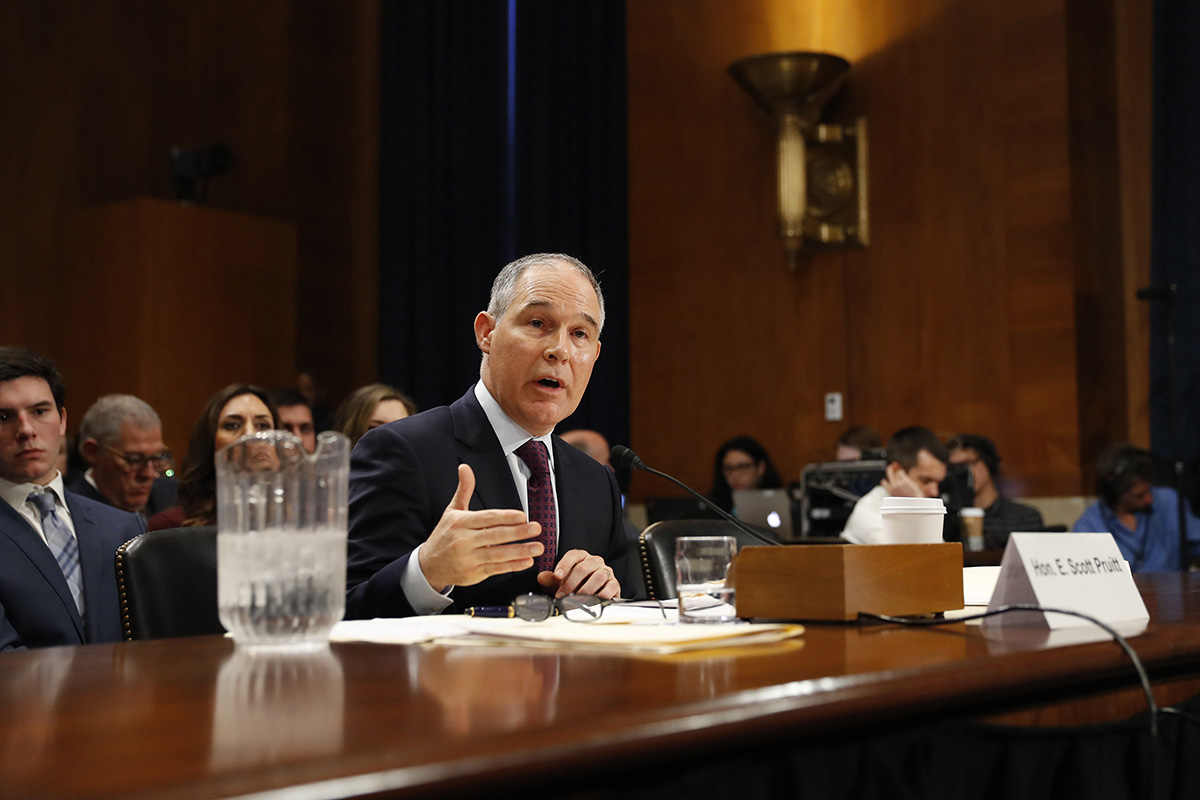Scott Pruitt is the ideal person to stop the agency's overreach.
Oklahoma Attorney General Scott Pruitt may not seem the most obvious choice to lead the Environmental Protection Agency. He is a lawyer by training, not an environmental specialist, from a state whose economy relies heavily on oil and gas production. His rise to national prominence was fueled in part by his opposition to the EPA's activities and his lawsuits against it. But he is exactly what the agency needs.
“Some critics view Pruitt's lawsuits as "anti-EPA," but that is not how the American constitutional system works. ”
In recent years, the EPA has fundamentally misunderstood its role. Under President Barack Obama, it saw itself as protector of the nation's environment, which is not quite correct. Yes, the EPA is responsible for environmental protection – its name says so. But, more specifically, it is responsible for enforcing the nation's environmental laws.
Protecting the environment and enforcing environmental laws may sound the same, but there is a world of difference between them. It is the U.S. Congress, not the EPA, that is responsible for deciding how much environmental protection is necessary and then writing laws to that effect. Those laws must strike a number of delicate balances: between environmental protection and economic growth, between the rights of property owners and the rights of communities, and between the federal government and its state and local counterparts.
To enforce those laws, the EPA must accept the tradeoffs that Congress chose to make. It cannot simply identify a source of pollution and try to regulate it. It must first ask whether Congress has given it authority to address that type of pollution from that type of source, what types of regulations it is allowed to use, and how it should weigh the costs and benefits of taking action.
Too often, the EPA has ignored these constraints. For instance, it issued a regulation targeting mercury pollution that it said would cost power plants more than $1,500 for every $1 of benefit from mercury reduction. But Congress had not given it the authority to impose such a rule without even considering the cost. Pruitt, along with many other state attorneys general, sued. The Supreme Court struck down the rule.
Even more egregiously, the EPA issued its "Clean Power Plan," which attempts to combat climate change by mandating the cuts that all states must make in their greenhouse-gas emissions. But Congress has not passed any law giving the EPA authority to manage states in that way. Once again, Pruitt and many others sued. The litigation is still in progress, but the Supreme Court has taken the extraordinary step of issuing a "stay" that prohibits the EPA from moving forward with implementing the rule while a lower court is reviewing the case.
The Clean Power Plan was just one of nine new major rules issued by the EPA in 2015 alone, which the Heritage Foundation reports will add new regulatory costs of more than $10 billion per year according to the EPA's own conservative estimates. The EPA issued more major rules than any other agency, and the cost of its rules was more than four times greater than for any other agency.
Some critics view Pruitt's lawsuits as "anti-EPA," but that is not how the American constitutional system works. The EPA said it had authority under the law, Pruitt (acting on behalf of Oklahoma) said it didn't, and the Supreme Court sided with Pruitt. He plainly understands the EPA's role at least as well as its own prior leaders did, if not better. Now, as EPA administrator, he won't have to pursue years of litigation to keep the EPA's behavior within its legal limits; he will have that control himself.
Perhaps if the nation were struggling with unprecedented pollution and seeking to implement new laws in response, an EPA administrator who specialized in pollution control technology would be more appropriate. But that is not the case. As the EPA proclaims proudly, air pollution has declined 70 percent in the past 45 years. What the nation struggles with today is costly and unlawful overreach by its federal environmental agency. Pruitt can help to fix that.
This piece originally appeared in U.S. News & World Report
______________________
Oren Cass is a senior fellow at the Manhattan Institute. Follow him on Twitter here.
This piece originally appeared in U.S. News and World Report
